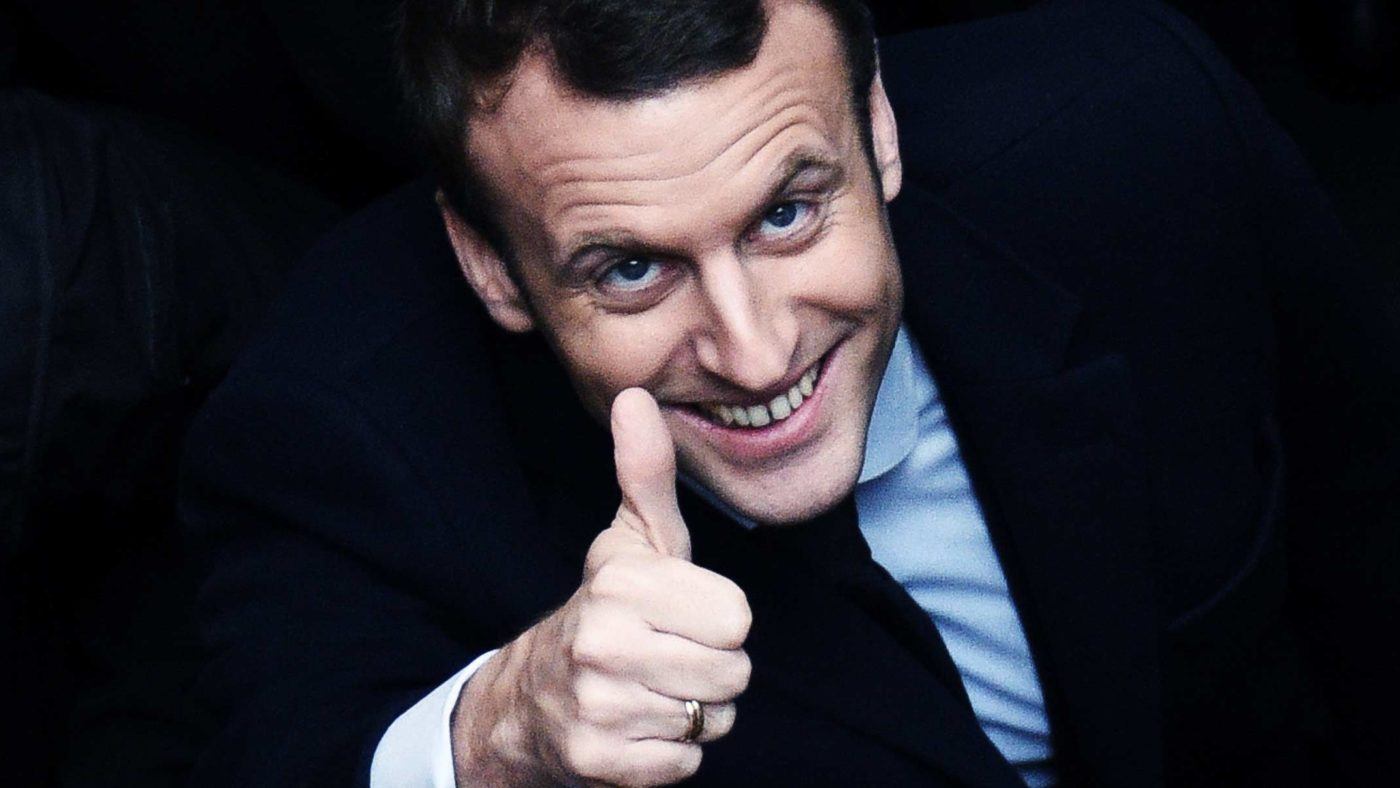A huge sigh of relief greeted the outcome of the first round of France’s presidential election. But Emmanuel Macron’s catch-all appeal may yet turn out to be rather too good to be true – his programme has, after all, been compared to a box of chocolates with soft centres. The coming months, for he is bound to win in two weeks’ time, will show just how resilient the 39-year-old is – and reveal just how far across the French political landscape this earthquake will reach.
Whatever happens, there is no gainsaying the extraordinary turn of events that has seen him come from nowhere to clinch an almost certain victory, eliminating the two main political parties on the way, and combining the status of an outsider with an essentially establishment message.
Marine will doubtless improve her score in the second round on 7 May. But, for all her rhetoric last night about rallying “patriotic” voters behind her, the parade of defeated candidates lining up behind Macron told the real story.
Le Pen lacks the necessary “reservoir” of votes from defeated first-round candidates that would allow her to achieve a majority at the run-off; furthermore her first-round support declined from a high of 28 per cent early in the year. Her rhetoric going into the first round was crafted to appeal to her base rather than broaden her support. It is a fair bet that she has got her eye on 2022 hoping to build strong party support over the next five years.
So though Macron’s victory answers one question – will Marine Le Pen stage a decisive breakthrough? – it does opens up a more intriguing one: will the new arrival be able to re-shape the politics of the Fifth Republic?
Macron has the chance to open the door to the economic structural reforms which France has needed for decades, and thus be positive for markets; while the Franco-German relationship which lies at the core of the euro-zone would be strengthened. But if he fails to make the difference, then a Le Pen victory at the next presidential poll in 2022 will be even more likely: something which would frighten markets and threaten the whole European project
So the real challenge for Macron will be to construct a coalition which does more than just slay the National Front dragon. The building blocks are there, waiting, after a campaign which has wreaked such damage on the two forces which have dominated French politics since the departure of Charles de Gaulle in 1969.
The splitting of the Socialists after François Hollande’s sorry presidency, means that pro-reform, pro-European Social Democrats are looking for a home. The mainstream Republicans are also in a pickle after losing an election which should have been theirs to win. The failure of François Fillon to qualify for the second round compounds internal strains, not to mention the threat on the right from the National Front. Liberals such as Alain Juppé could well rally to Macron. Add to these two the centrists who have already backed Macron – and the shape of a coalition is clear.
But how homogenous such a coalition would prove, how much time and effort the new president would have to spend holding it together, and how many of his policy proposals he would be able to realise are all open questions at this stage – made all the more imponderable by his relatively untried record.
While his presidency would be welcomed by the pro-reform, pro-European camp, and by markets, it would only compound a basic malfunction in the political system which the first round of the election highlighted – and won’t get any better. The anti-establishment presidential candidates of Right and Left may have got almost half the vote on Sunday, but the number of parliamentary seats the insurgent parties will win in the summer will be limited.
Some of the first round support was pure protest – which will not translate into lasting political impact – and some of Jean Luc Mélenchon’s voters on Sunday might move to the new centre. Still, Le Pen and Mélenchon will not fade away, and the divide between the new Macronite establishment and the unrepresented populists is likely to be a constant source of instability. A centrist coalition would goad the ideologues at the extremes.
Even if some of their big beasts defect, the Republicans and Socialists will not sit by and let Macron run the shop unchallenged; both will be looking to re-establish themselves under new leadership. The big CGT trade union would also cause trouble as it seeks to make up for dwindling membership with an increased militancy. And vested interests, from farmers to pharmacists, would stage protests. The Front is already the main electoral vehicle for industrial workers and could use this strength to reinforce its opposition to Macron’s promised liberalisation of the labour market.
Any further terrorist attacks would add to the pressure on the security forces and feed Le Pen’s rhetoric. If the economy did not sustain its current sunny performance, that would be blamed on the new president. In any case, even if the numbers continue to be good, dealing with the ingrained high unemployment level and the social tensions it fuels is a long-term task.
Some of Macron’s proposals could be put through quite quickly – such as the tax cuts which Republicans in parliament would not oppose. But he has very little to offer the moderate Left and threatens them with disappearance via absorption.
The real test will lie in the long haul – cutting the deficit, making the economy more competitive and reducing unemployment. His predecessors have promised action on these fronts and fallen short.
If Macron fails, too, the scene will be set for an even more turbulent election in five years’ time with plenty of stormy water along the way.


